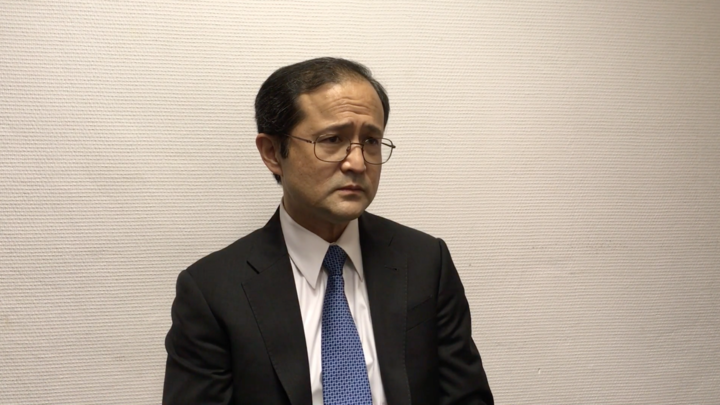#MSParis2017 – Ocrevus Trial Data May Lead to Key Biomarkers of Chronic Inflammation, Genentech Says

Dr. Hideki Garren of Genentech.
Potential new ways of capturing disease progression in multiple sclerosis (MS) patients — including those with chronic as opposed to active inflammation — are coming to the fore as analyses continue into the huge amounts of data collected during pivotal clinical trials that led to Ocrevus’ approval, a leading Genentech researcher said in an interview.
“At ECTRIMS, we’ve introduced a measure called PIRA — progression independent of relapse activity — and here we look at progression that’s independent of the relapses,” Hideki Garren, group medical director of ocrelizumab for Genentech, told Multiple Sclerosis News Today. “Progression [that] appears to be driven by chronic inflammation.”
It has “a very significant impact” on MS patients, Garren said, both in terms of mobility and life quality. Garren spoke at the four-day 7th Joint ECTRIMS-ACTRIMS Meeting in Paris that ended on Oct. 28.
PIRA emerged as a possible measure of increased disability in a post-hoc analysis of data on the 1,656 relapsing MS patients enrolled in the OPERA I and OPERA II (NCT01247324 and NCT01412333) Phase 3 trials, of which 827 were treated with Ocrevus (ocrelizumab) and 829 with Rebif (interferon beta-1a).
Data also showed “a significant reduction” — about 40 percent — in underlying progression in those treated with Ocrevus compared to those given interferon, Garren said.
Another potential biomarker coming from this continuing work is an “automated methodology” — an algorithm — applied to what is seen on conventional MRI scans. It shows what Genentech, a division of Roche, calls SELs, or slowly evolving lesions. SELs may be markers to detect disease activity that’s taking place outside of active lesions in a patient.
“We’re excited about this potential biomarker for chronic inflammation,” Garren said.
In the interview, he also talked about the importance of the FLOODLIGHT study, gathering both “active and passive” data on patients using sensors connected to a smartphone. Active data are collected in a “pinch test” or the like, while passive data is gathered while patients in the study go about their day.
This information, using machine learning, is compared to what physicians record during office visits, with a goal of detecting progression that patients might not even be aware of.
“It’s a way to really understand whether there is something we can measure that’s underneath the surface,” Garren said. Clinic visits assess a person at a given point in time, but FLOODLIGHT aims for “a way to look at patients in between visits, to see if we can help patients identify things that they don’t notice.”
He also spoke of continuing analyses of Ocrevus’ safety in patients, a study of blood and spinal fluid biomarkers in Ocrevus-treated patients that may further understanding of how the treatment works in a person, and continuing analyses of treatment effects in PPMS patients who took part in the ORATORIO (NCT01194570) trial.
Ocrevus was approved by the U.S.Food and Drug Administration in March 2017, becoming the first treatment available to people with both relapsing and progressive MS.
The complete interview can be seen below:






